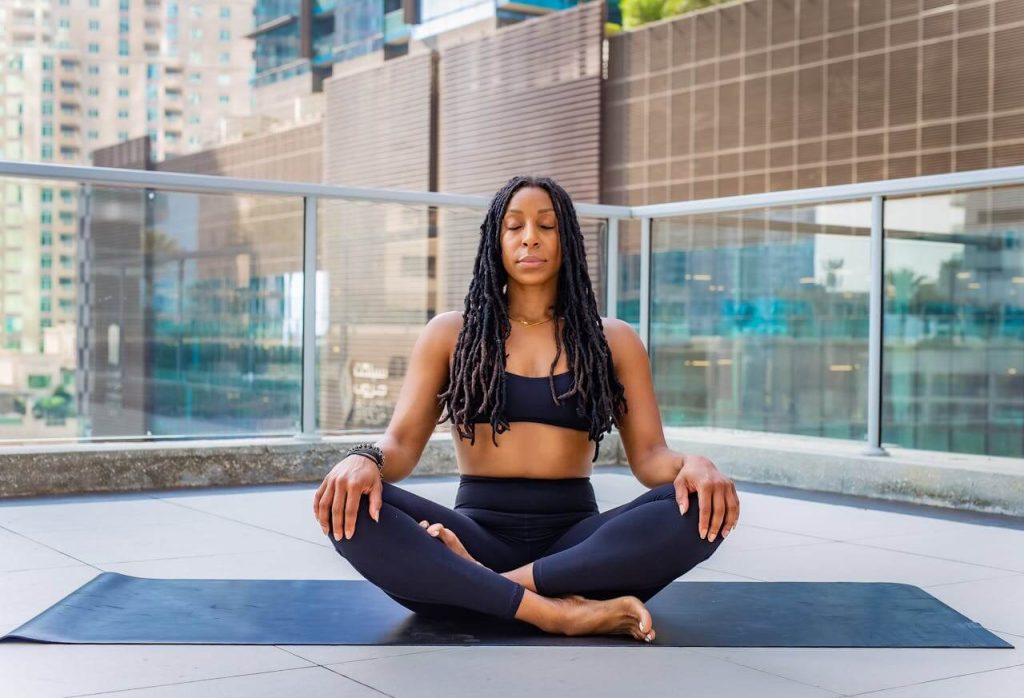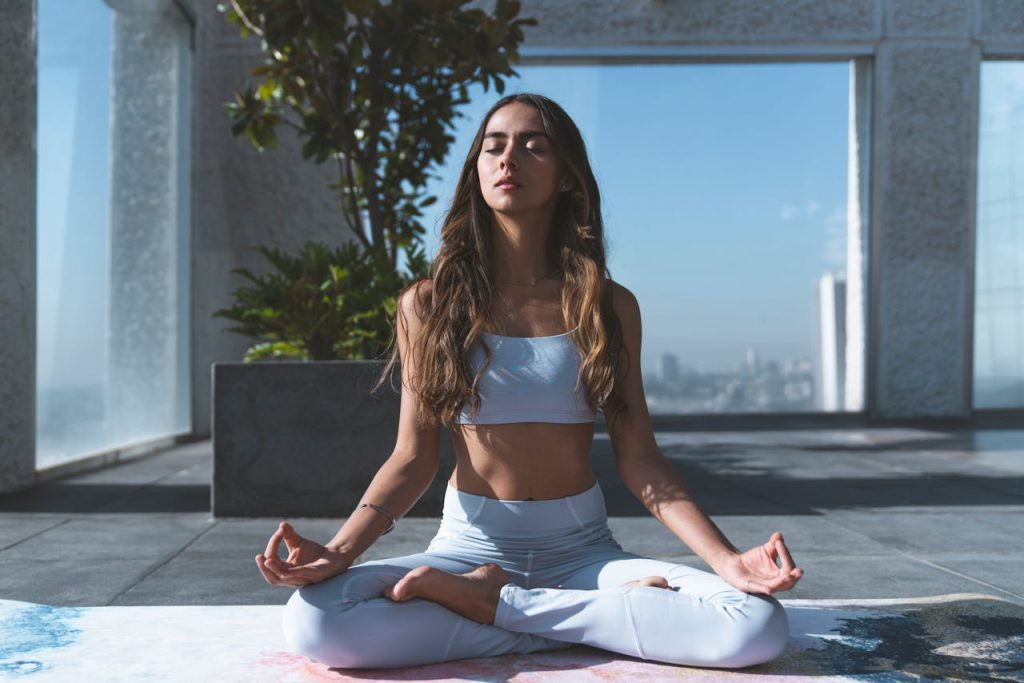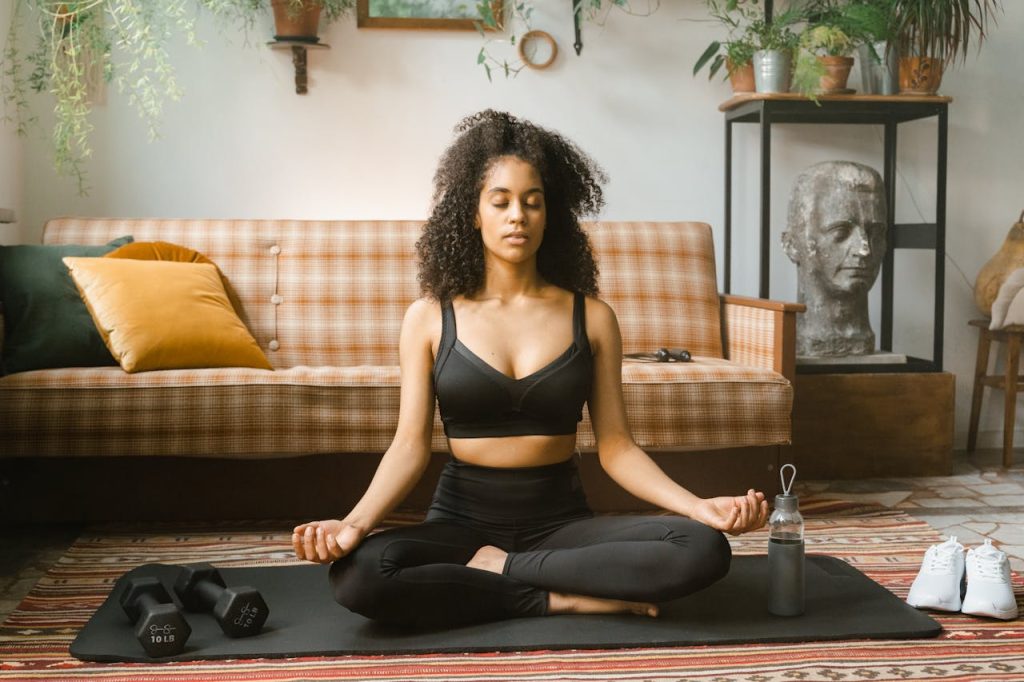Discover how meditating at home can transform your mind and body. Learn techniques, benefits, and expert tips to create a peaceful home meditation routine that fits your lifestyle.
Overview
In this comprehensive guide, you’ll learn how meditating at home can help reduce stress, improve focus, and support overall well-being. You’ll discover how to set up a peaceful meditation space, explore different types of meditation, and develop a daily practice that fits your lifestyle. By the end, you’ll have everything you need to confidently begin or enhance your home meditation journey—all with the expert guidance of Mindfulness Meditation Hub, where we offer resources and personalized support for your mindfulness growth.
Why Meditating at Home Matters
In today’s fast-paced world, finding time for peace and self-reflection can feel impossible. That’s where meditating at home comes in. Unlike going to a studio or retreat, home meditation allows you to create a private sanctuary where you can practice mindfulness on your own terms. Whether you’re new to meditation or have years of experience, a home practice gives you the flexibility and consistency needed to make meditation part of your daily life.
At Mindfulness Meditation Hub, we help people embrace mindful living through guided meditations, virtual sessions, and practical mindfulness resources—all from the comfort of home.

The Benefits of Meditating at Home
Practicing meditating at home offers a wide range of benefits for your mind, body, and spirit. Here are some of the most powerful ways it can transform your daily life:
1. Convenience and Comfort
- No commute, no schedule restrictions—meditate whenever you like.
- Practice in your most comfortable clothes and environment.
- Create a personal space filled with scents, sounds, and lighting that calm your mind.
2. Reduced Stress and Anxiety
- Regular meditation lowers cortisol levels (the stress hormone).
- It helps regulate your breathing, improving oxygen flow and calmness.
- Over time, your nervous system learns to respond to challenges with more ease.
3. Better Focus and Productivity
- Meditation strengthens your attention span and cognitive clarity.
- When you practice meditating at home regularly, distractions decrease and motivation improves.
4. Emotional Balance and Self-Awareness
- Meditation helps you observe thoughts without judgment.
- You become more aware of your emotions and can respond rather than react.
5. Physical Health Improvements
How to Create the Perfect Home Meditation Space
Creating the right environment for meditating at home makes a big difference in your experience. You don’t need much—just intention and simplicity.
Step 1: Choose a Quiet Spot
Find a location where you won’t be disturbed. It could be a corner of your bedroom, a balcony, or even a small section of your living room.
Step 2: Declutter and Simplify
A clean and minimal space promotes inner calm. Remove unnecessary items that might distract your focus.
Step 3: Add Calming Elements
- Lighting: Soft, natural light or a candle glow.
- Aromatherapy: Use lavender or sandalwood essential oils to soothe the senses.
- Sound: Play gentle instrumental music or nature sounds to enhance focus.
Step 4: Set a Daily Routine
Meditation works best with consistency. Start with 5–10 minutes each day and gradually increase as your comfort grows.

Popular Techniques for Meditating at Home
Not sure where to start? Try these effective techniques to find what resonates most with you.
1. Guided Meditation
Perfect for beginners, guided meditations provide spoken instructions to help you focus. You can access free or premium guided sessions on Mindfulness Meditation Hub.
2. Mindfulness Meditation
This involves observing your thoughts, feelings, and sensations without judgment. Simply sit comfortably, breathe naturally, and stay aware of the present moment.
3. Loving-Kindness Meditation (Metta)
Cultivate compassion and kindness by silently repeating phrases like “May I be happy, may I be peaceful.” Then extend those wishes to others.
4. Breath Awareness Meditation
Focus on your breathing rhythm. Notice the sensation of air entering and leaving your nostrils or the rise and fall of your chest.
5. Body Scan Meditation
This technique involves mentally scanning your body from head to toe, releasing tension as you go. It’s especially helpful before bedtime.
Tips to Stay Consistent When Meditating at Home
Creating a daily meditation habit can be challenging, but these tips will help you stay on track:
- Set a fixed time: Choose a consistent time each day, like early morning or before bed.
- Start small: Even 5 minutes daily makes a difference.
- Use reminders: Set an alarm or place a visual cue (like a candle) to remind yourself to meditate.
- Track your progress: Use a journal to record how you feel after each session.
- Join an online community: Connect with others through the Mindfulness Meditation Hub for motivation and accountability.
Common Challenges When Meditating at Home (and How to Overcome Them)
Even the most dedicated meditators face challenges. Here’s how to manage them:
- Distractions: Use noise-canceling headphones or meditate early when it’s quiet.
- Restlessness: Try shorter sessions or switch positions until you find comfort.
- Sleepiness: Sit upright instead of lying down, and practice at a time when you’re alert.
- Impatience: Remember—meditation is a lifelong practice, not a quick fix.
How Mindfulness Meditation Hub Can Help
At Mindfulness Meditation Hub, we specialize in helping individuals begin and deepen their mindfulness journey. Our services include:
- Personalized Meditation Coaching: One-on-one online sessions to build your home routine.
- Guided Meditation Library: Access a growing collection of guided meditations for stress relief, focus, and better sleep.
- Mindfulness Courses: Step-by-step programs designed to teach you the art of meditating at home effectively.
We believe everyone deserves access to peace, clarity, and emotional balance—starting right where they are.
Final Thought: Start Meditating at Home Today
Meditating at home is more than just a wellness trend—it’s a lifestyle practice that can bring lasting peace, clarity, and balance into your life. With the right space, consistent routine, and expert guidance, you can experience the full benefits of meditation without leaving your home.
At Mindfulness Meditation Hub, we’re here to support you every step of the way—whether you’re just starting or looking to deepen your practice. Begin your journey today and create a mindful sanctuary within your own home.
FAQs for Meditating at Home
What are the benefits of meditating at home?
Meditating at home helps reduce stress, improve focus, and enhance emotional balance. It also promotes better sleep, boosts your immune system, and creates a sense of inner peace in your daily life.
How can I start meditating at home as a beginner?
Start small with 5–10 minutes a day. Find a quiet space, sit comfortably, and focus on your breath. You can also use guided meditations from platforms like Mindfulness Meditation Hub to help you stay focused and relaxed.
Do I need special equipment for meditating at home?
No, you don’t need any special equipment. A comfortable cushion, yoga mat, or chair is enough. The most important thing is a quiet and peaceful environment where you can sit undisturbed.
What is the best time to meditate at home?
Many people prefer early morning or evening when the environment is calm. However, the best time is whenever you can consistently make meditation part of your daily routine.
How long should I meditate at home each day?
Beginners can start with 5–10 minutes a day and gradually increase to 20–30 minutes. Consistency is more important than duration, so focus on building a regular habit first.
Can I use music while meditating at home?
Yes, gentle background music or nature sounds can enhance your meditation experience. Choose calming instrumental tracks or guided meditations to stay centered.
What’s the best meditation technique for home practice?
Popular techniques for meditating at home include mindfulness meditation, breath awareness, body scan, and loving-kindness meditation. Try different methods to find what feels best for you.
How can I stay consistent with my home meditation routine?
Set a specific time each day, create a peaceful meditation space, and start with short sessions. You can also set reminders or follow an online meditation program to stay accountable.
Can meditating at home help with anxiety and depression?
Yes, regular meditation helps calm the nervous system, lower cortisol levels, and improve mood regulation. Over time, meditating at home can significantly reduce symptoms of anxiety and mild depression.
What should I do if I get distracted while meditating?
Distractions are normal. When your mind wanders, gently bring your focus back to your breath or chosen point of attention without judgment. With practice, concentration naturally improves.
Is it okay to lie down while meditating at home?
Yes, you can lie down if you’re doing relaxation or body scan meditation. However, sitting upright helps you stay alert and prevents drowsiness during mindfulness sessions.
Can kids or teens practice meditation at home?
Absolutely! Meditation is great for all ages. Start with short, guided meditations or mindful breathing exercises that are simple and engaging for children and teenagers.
How can I make my home space better for meditation?
Choose a quiet area with soft lighting and minimal distractions. Add calming elements like candles, plants, cushions, or aromatherapy to create a soothing atmosphere.
How soon will I notice results from meditating at home?
Many people feel calmer after their first few sessions, but lasting benefits come from regular practice. Within a few weeks, you’ll likely notice improved focus, better sleep, and reduced stress.
How can Mindfulness Meditation Hub help me meditate at home?
Mindfulness Meditation Hub offers guided meditations, mindfulness courses, and personalized coaching to help you build a consistent home meditation practice. We provide the tools, support, and structure to make your journey easy and rewarding.

